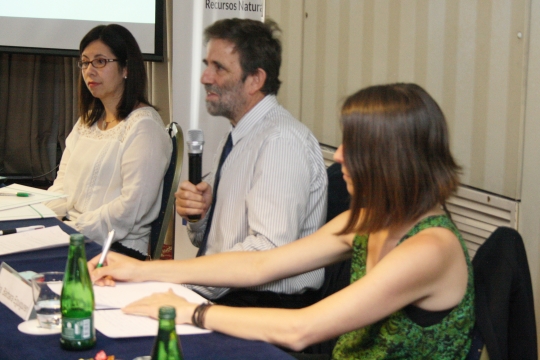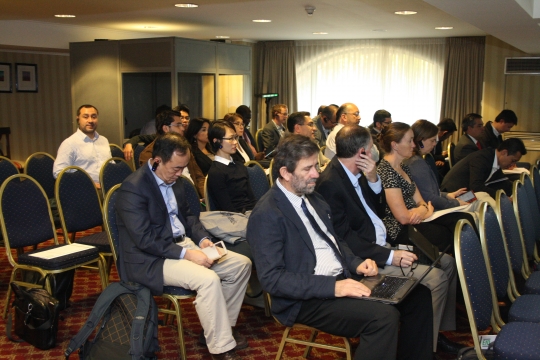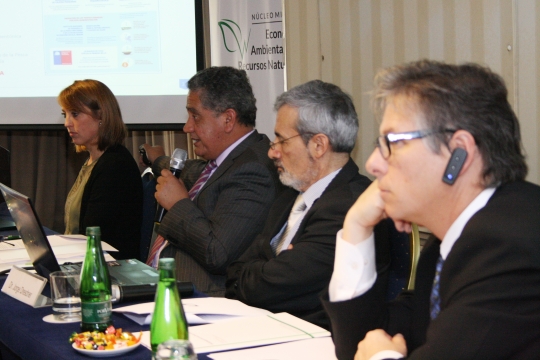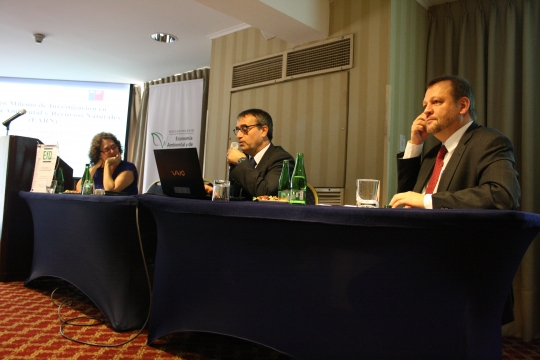In relation to the EfD Annual meeting, the Chilean EfD center (NENRE) organized a policy day as a forum for policy makers and EfD researchers to meet and exchange ideas. The focus of this year´s event was fisheries and energy.
The day kicked off with a warm welcoming by EfD Chile center director Carlos Chaves, followed by EfD Director Gunnar Köhlin, who highlighted the importance of these events to facilitate information exchange between academia and decision makers. The first panel started with the undersecretary of Fisheries and Aquaculture of the Chile Economics Ministry, Raúl Súnico, his presentation focused on the challenges in the recovery of fisheries due to climate change and how this challenges translate into a decrease of income in the fishery communities of the country, “ It is impossible to think about development in the sector without integrating the expected changes in climate patterns” said Súnico, and finished his presentation emphasizing on strengthening the relationship between public policy makers and academia, and thanking the efforts that the scientific community makes to generate knowledge to improve the decision making processes.
Next presentation was led by Dr. Martin Smith and focused on innovation in seafood production and how to create innovative markets and technology to add economic value to the fishery production. The session was closed by Erica Cunningham from the Environment Defense Fund, who talked about the challenges of the fishery sector in Chile. She emphasized climate change uncertainty and adaptation management and how research and public policy can address these challenges. The Second panel on energy started with Bárbara Eguiguren from the Policy Unit for the Division of Prospective and Energy Policy of the Chilean Ministry of Energy who presented the long term Chilean Energy Policy. One of the most important pillars of the Energy Policy is a national renewable energy matrix, with the goal of generating 70% renewable electricity by 2020 and how the Energy Policy considered the Strategic Environmental Assessment, taking in to account environmental, economic and social variables.
Professor Thomas Sterne, University of Gothenburg, closed the panel with a presentation on the long term challenges of the energy sector. Starting with sustainability issues related to a growing population who increase the demand for world agreements towards lower emission goals. However, it is not all bad news: Technological development, using solar panels as a success case of renewable production, technology advances and low cost adaptation. Professor Sterner closed his speech recognizing that energy production is a worldwide effort, but starts in each countries efforts on policy decisions and the message to their citizens.



